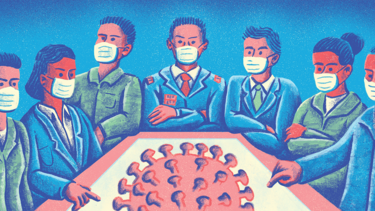COVID19
Going the Last Mile (with Evidence)
A study by Yale’s Mushfiq Mobarak and his colleagues found that nurses on motorbikes with vaccine-stocked coolers could help increase vaccination rates in rural Sierra Leone, showing that it is possible to get health interventions to the most remote and under-resourced areas cost-effectively, in ways that help ensure that the interventions are taken up and used.
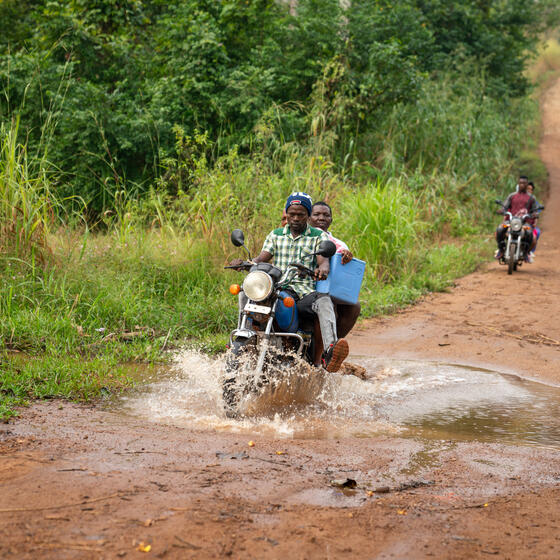
Repurposing with a Purpose
David Browning ’99 explains how a nonprofit doing coffee sustainability verification became a source of crucial public health data.
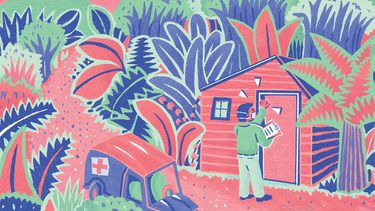
Three Questions about COVID-19 Infection and Immunity
We checked in with Yale SOM’s Dr. Howard Forman about herd immunity, vaccines, and that case of reinfection in Hong Kong.
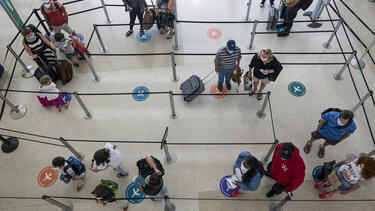
Smartphone Data Shows How Shared Staff Spread COVID-19 through Nursing Homes
COVID-19 infections have spread rapidly through nursing homes. A new study co-authored by Yale SOM’s Judith A. Chevalier finds one likely explanation: staff members who work at multiple nursing homes.
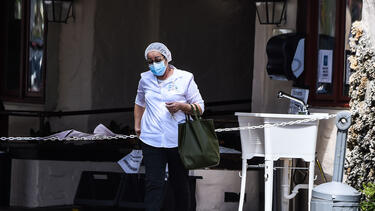
Will COVID-19 Worsen Inequality in the United States?
The path of the pandemic has been shaped by inequality, with poor and minority workers experiencing greater exposure to infection and fewer health protections. Has the policy response helped ease these inequities—or made them worse?
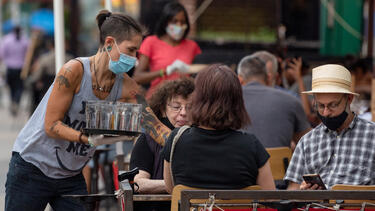
A Federal Program Is Supposed to Keep Midsize Businesses Afloat. Why Isn’t It Reaching Them?
Yale SOM’s William English explains how the Main Street Lending Program fits into the array of federal stimulus efforts and offers proposals for making it work better.

In Estimating COVID-19 Infection Risk, Frequency of an Activity Is Key
With proper precautions, the risk of a day at work, a ride on the bus, or a workout at the gym may be acceptable, write Yale SOM’s Arthur J. Swersey and his co-authors. But that risk compounds dramatically when an activity is repeated day after day.

Lessons from Past Pandemics
Matt Walton ’78, an entrepreneur whose emergency management software was used to direct responses to past pandemics, examines the cost of lessons not learned.

Study: Controlling COVID-19 Outbreaks in Residential Colleges Requires Frequent Testing
Using a computer model, the researchers found that weekly testing will keep outbreaks under control under relatively optimistic scenarios, but that testing every three days would be more reliable.
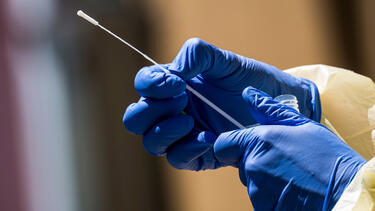
The Borderlessness of Tech-Driven Media
Dayo Olopade ’15, a lead for film and television partnerships at Google, discusses the global disruption of production, distribution, and consumption of media around the world.

The U.S. Army Adapts to the Pandemic
Richard Kidd ’93, who serves as deputy assistant secretary of the army for strategic integration, explains how the U.S. Army has responded to the COVID-19 crisis and the lessons we can learn from the experience.
